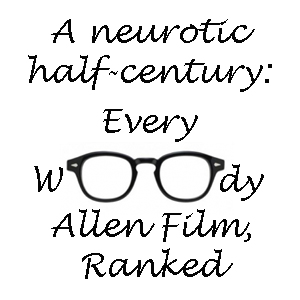This one hurts. Since the #MeToo and #TimesUp era began, my friend Mike and I have occasionally talked about which celebrity’s theoretical outing as a monstrous person would be most painful. He says Patton Oswalt – coincidentally, someone who has worked with Joss Whedon.
I never had a serious answer, but judging by how unexpectedly heartbroken I am to hear that Whedon allegedly verbally abused Charisma Carpenter on the set of “Angel,” my answer might’ve always been the man whose inventions fill up numerous DVD racks, bookshelves and comics longboxes in my apartment.
A new perception
Certainly, we’re talking about First World problems here. And certainly I could’ve dug deeper and known the gist of this years ago. But it became unavoidable after Carpenter’s Wednesday Twitter post and the quick support from Sarah Michelle Gellar, Amber Benson, Michelle Trachtenberg, Clare Kramer and Emma Caulfield, all of whom have unfriended Whedon IRL.
Plus, James Marsters had previously gone public with an account unprofessional behavior by Whedon in the wake of “Justice League” actor Ray Fisher’s complaints about the director.
Although Anthony Stewart Head said he was “gutted” by Carpenter’s revelation, having experienced his “Buffy” time as a happy family environment (something that makes me feel a little less naïve), in general, we have to repaint the eight-year small-screen creation of the Buffyverse as a bad workplace rather than a wonderful collaborative environment.
I had unconsciously been somewhat prepared. Whedon hadn’t done an original series since “Dollhouse” more than a decade ago. He’s a hired hand on his comic-book films and TV of the 2010s. I subconsciously wondered if he was a four-idea guy (the Buffyverse, “Firefly,” “Dollhouse” and “Dr. Horrible”) and – with “Buffy’s” Dark Horse Comics continuation over – I didn’t spend much time thinking about future Whedon projects.
Also, I noticed his politics don’t line up with what he preaches; the Alliance is the enemy in “Firefly,” yet he supports Alliance-like candidates IRL. So I knew this renowned feminist was capable of self-contradictions.
Stake to the heart
Still, this one hurts because I had experienced Whedon’s work in real time, starting with my late discovery of “Buffy” during Season 2. I watched live, and taped for posterity, every episode of his four series, then bought the DVDs. I’m not a big rewatch person, but I’ve certainly watched “Buffy” more than any other show.
As my friend and former RFMC contributor Shaune points out, I write that things remind me of a moment from “Buffy” in an inordinate number of film and TV reviews — his polite way of saying it’s meaningless to a non-“Buffy” fan.
On this blog, I’ve reviewed plenty of work by other people with questionable moments in their personal lives. For example, John Hughes fired and disowned colleagues and friends on a whim. Philip K. Dick was a poor husband — although he took five tries at it. Woody Allen had controversial romantic relationships.

But I didn’t experience their work as it was released, and I don’t know the people they wronged. I can’t say I know Carpenter either, but by all accounts she’s a good person, and Cordelia is darn near my favorite character on rewatches.
Carpenter brings the character alive, and Whedon – known in the good ole days for his openness in talking about the TV-making process – has credited her performance with leading to an expansion of Cordelia’s arc. I know Cordelia, so I feel like I know Carpenter. That’s juvenile, but hey, fandom is innocent at its core, and that’s part of the point.
So two people I thought I knew don’t get along, Whedon having deeply hurt Carpenter and either (to read it generously) not been aware of it or (at the other end of the spectrum) found no problem with belittling her. My next viewing of “Buffy” and “Angel” will inevitably come through an altered lens.
Not just one auteur
Essayists at the Whedon Studies Association (formerly Slayage) are also wrestling with this feeling of heartache. Yes, art has value even if the artist is a jerk, but a certain pleasure comes from writing about the work of someone we admire as a person too.
So here’s the one good thing: This new image of Whedon will force us to pause before lazily looking at his work under the auteur theory and instead realize that actors, directors and other writers played a part in bringing Whedon’s visions alive. It’s not about rewriting history so he’s no longer the main force (he obviously was), but rather about highlighting the team effort.
For example, my favorite episode of “Buffy” was written by Ty King and directed by Michael E. Gershman, and my favorite “Angel” episode is written by Elizabeth Craft and Sarah Fain and directed by Vern Gillum. These aren’t pseudonyms for Whedon; they are real, separate people. But I had to double-check their names for this paragraph.
Additionally, random chance sometimes plays a role in a TV narrative’s fortunes. According to Marsters’ revelation, Whedon originally did not want a handsome actor to play Spike; he wanted Angel to be the only romantic-interest vampire. It sounds like a WB casting director wanted Marsters.
Whedon brilliantly oversaw the evolution of Spike later, but perhaps he shouldn’t be credited for envisioning this character from the start.
Try the spinoff fiction
An under-the-radar person speaking out against Whedon is tie-in fiction author Jeff Mariotte, who – in supporting Carpenter – said “I know Joss. I don’t like him, but I know him.”
The actors certainly never intended to work with Whedon again, and they are either semi-retired or their careers have stalled (except for Caulfield, who re-emerged on “WandaVision”). Mariotte’s post likely assures that he won’t write for a Whedon property again — plus Whedon often works with Fox, which is owned by Disney. That’s a pretty big financial sacrifice for a writer.
While Whedon kept his rudeness toward actors behind closed doors (while often praising their work in public — genuinely, I think), he openly disdained tie-in fiction. I used to think this is just how creators of properties act (George Lucas was wishy washy on “Star Wars” books and comics), but now I see a darker side to his view of licensed stories.
So in addition to appreciating the TV shows’ collaborators more, we should go read the best “Buffy” and “Angel” books (many of which are by Mariotte). My initial journey into Buffyverse tie-in fiction came from my thirst for more time in Whedon’s sandbox.
Now those stories can be an escape from Whedon, who mastered TV, film and comics, but hasn’t published a novel.
If Whedon ever resuscitates his image with apologies and repairs of relationships, all the better. But if he doesn’t, let’s remember not only that art can be appreciated outside of the troubled artist, but also that a lot of Buffyverse stories – including some great ones — weren’t told by Whedon.

